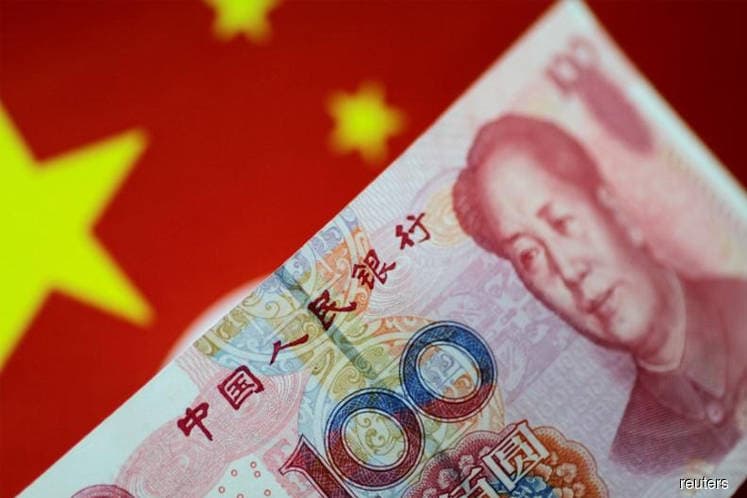
BENGALURU (Oct 9): Losses in most Asian currencies were limited by a strengthening in the yuan on Tuesday, as the Chinese currency recovered after previous session's losses, which came after a week-long holiday.
The yuan drew some support from comments by International Monetary Fund Chief economist Maurice Obstfeld, who said he was not concerned about the Chinese government's ability to defend its currency.
The yuan was 0.21 percent stronger against the dollar at 0549 GMT, having struck a seven-week low on Monday following a move a day earlier by the People's Bank of China to cut banks' minimum cash reserve levels in order to support the economy.
On Monday, China said it would increase export tax rebates and quicken export tax rebate payments to support exporters, who have been wounded by an ongoing tariff war with the United States.
Despite the yuan's recovery on Tuesday, Stephen Innes, Oanda's head of trading for Asia-Pacific in Singapore, believed the respite would be short-lived.
Innes foresaw the yuan breaching 7 per dollar as he expected further policy easing by the PBoC. A state-backed Chinese tabloid that commented the economy needed strong stimulus measures to support growth.
A resurgence in oil prices and rising U.S. Treasury yields forced the Indian rupee to give up gains, after it had strengthened as much as 0.24 percent against the dollar in a short-lived rally after five straight sessions of declines.
The rupee plumbed fresh lows after the Reserve Bank of India surprisingly held its benchmark rates steady on Friday, wrongfooting investors expecting an increase.
Meanwhile, the Singapore dollar see-sawed ahead of the Monetary Authority of Singapore's (MAS) policy meeting on Friday, when a slim majority of economists polled by Reuters expect it to tighten.
The Pakistani rupee plunged about 8 percent in early trading in an apparent devaluation by the central bank, market participants said, a day after the new government said it would seek an International Monetary Fund (IMF) bailout.
The Thai baht was the top advancer in the region, strengthening about 0.3 percent against the dollar.
"I think there's a bit of a reflexive overextension in dollar-baht in the past few days, especially given concerns over a stronger dollar. So, there is still some downside risk," said WeiLiang Chang, a currency strategist at Mizuho.
Chang said the baht was still supported by quite strong economic fundamentals, including a relatively robust current account surplus.